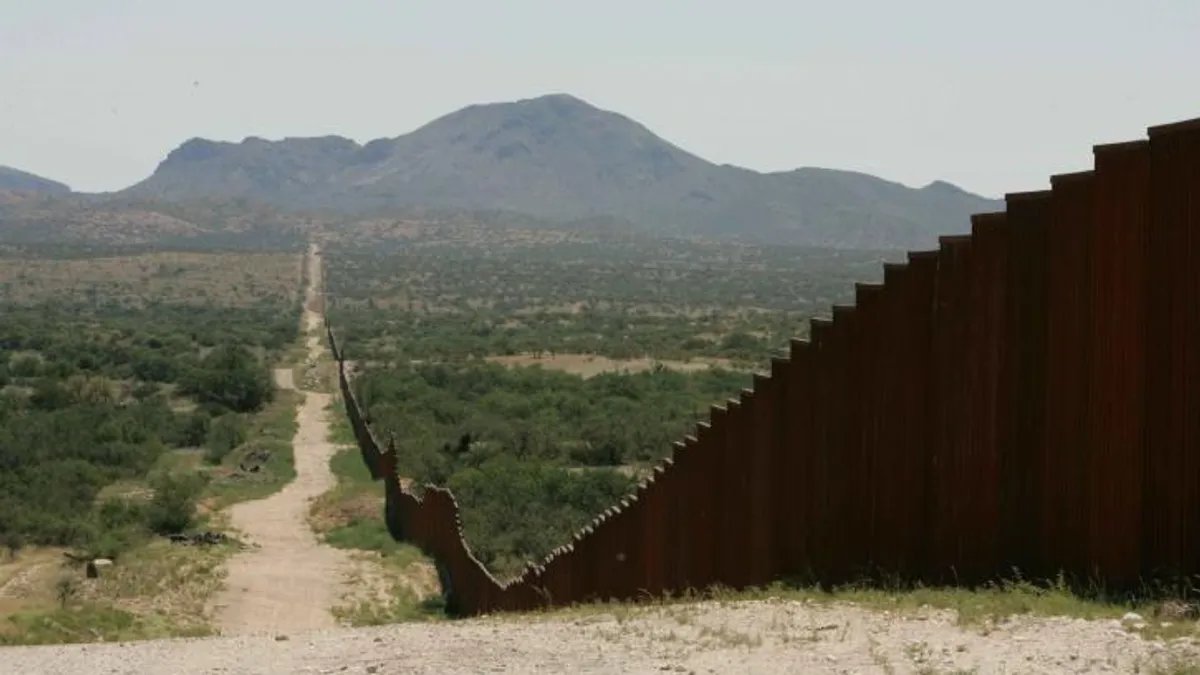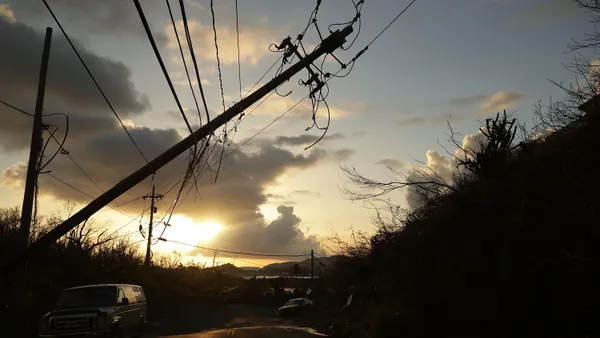Dive Brief:
- The U.S. Army Corps of Engineers has canceled a $187 million U.S.-Mexico border wall-related construction contract after protests alleged the agency’s bid process is unfair, the Washington Examiner reported.
- Fisher Sand & Gravel filed a protest with the U.S. Government Accountability Office in April after the Army Corps awarded Montana-based Barnard Construction Co. the contract for pedestrian wall replacement in Yuma, Arizona. At the core of Fisher’s complaint was that the Army Corps’ bid qualification requirements prohibited all other contractors from bidding on the project.
- In addition to rescinding Barnard’s contract, the Army Corps admitted to the GAO that its bid process improperly excluded otherwise qualified contractors and said that it would rebid the Yuma project.
Dive Insight:
Fisher filed a similar protest against the $789 million contract that the Army Corps issued Texas-based SLSCO Ltd. for work in New Mexico, also in April, but there is no indication yet that the government will cancel that contract too. Fisher took its complaints about the Army Corps bidding process for these two projects to federal court as well, alleging that the Army Corps had conducted a “highly flawed solicitation and award process.”
Fisher was one of a handful of companies selected to build the first border wall prototypes back in August 2017, although the type of concrete wall samples Fisher and other contractors built at a site in San Diego seem to have been abandoned by the administration in favor of a steel bollard design. In fact, earlier this month, the U.S. Department of Homeland Security’s Customs and Border Protection put out a call for comments on its plan to build 78 miles of concrete-filled steel bollard wall — 15 miles in Imperial County, California; 43 miles in Pima County, Arizon; and 20 miles in Cochise County, Arizona.
At one point, Fisher offered to build 700 miles of cast-in-place concrete wall for between $11 billion and $12 billion and more recently said it could build 234 miles of barriers for $1.4 billion, which would include 20 miles of levee wall in the Rio Grande Valley. For another $2.9 billion, Fisher said it could add paved roads, border technology and a warranty. So far, the government has not taken Fisher up on these offers.
However, Fisher received some good news this month when the Army Corps announced that it had selected the company, along with 11 others, to bid on up to $5 billion of future “horizontal construction” at the border. The five-year program includes firm-fixed-price contracts for both design-build and design-bid-build delivery, and the Army said the task orders for the work will be issued and bid on as needed.












